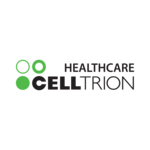- New data from the REMSWITCH study shows switching from intravenous (IV) to subcutaneous (SC) infliximab leads to higher infliximab trough levels and a low risk of relapse in patients with inflammatory bowel disease (IBD)1
- Data from the RTDM study show infliximab drug levels are stable across a 14-day treatment cycle for Crohn�s disease (CD) patients in remission, under maintenance therapy with Remsima� SC, enabling therapeutic drug monitoring to be performed at any time between the two SC injections2
INCHEON, South Korea--(BUSINESS WIRE)--Today, Celltrion Healthcare announced two new data sets on the SC formulation of infliximab, Remsima� (CT-P13) in IBD, at the European Crohn�s and Colitis Organisation (ECCO) virtual congress 2022.
The REMSWITCH Study
REMSWITCH, investigated the clinical and pharmacological impact of switching from IV to SC formulation of infliximab in patients with IBD, to evaluate the feasibility of switching and to determine the equivalence between IV and SC doses.1 In the study, 130 patients (73.1% CD patients, 26.9% ulcerative colitis [UC] patients) in clinical remission, each on an IV dose regimen of 5mg/kg/8weeks, 10mg/kg/8weeks, 10mg/kg/6weeks and 10mg/kg/4weeks, were switched to SC infliximab 120mg/2weeks, regardless of IV doses.1
Results showed switching patients from IV to SC infliximab is feasible, well-accepted and leads to a low risk of relapse in patients with IBD:
-
Infliximab trough levels were significantly higher after switching from IV to SC (9.8 � 6.4 �g/ml vs 14.4 � 5.7 �g/ml; p<0.0001)
- Trough levels increased in patients receiving 5mg/kg/8weeks (6.3 � 3.4 �g/ml vs 14.7 � 5.7 �g/ml; p<0.0001) or 10mg/kg/8weeks (8.4 �5.6 �g/ml vs 13.7 �g/ml �6.6; p=0.001)
- Trough levels remained stable in those treated with 10mg/kg/6weeks (11.1 �7.6 �g/ml vs 13.1 �5.1 �g/ml; p=0.31) or 10mg/kg/4weeks (17.8 �4.2 �g/ml vs 15.8 �4.6 �g/ml; p=0.12)
- Infliximab trough levels remained stable (variation V1-V0 (Visit 0 = V0) < � 1) in 4.3%, 15.0 %, 33.3 % and 50.0 % of the patients switched from the following IV doses respectively: 5mg/kg/8weeks, 10mg/kg/8weeks, 10mg/kg/6 weeks and 10mg/kg/4 weeks (p=0.003).
- Clinical relapse after switching which leads to therapeutic escalation was observed in 11.1% and dose increase (240mg/2weeks) induced clinical remission in 93.3% of relapsed patients.
- The risk of relapse was higher in patients with stable or decreasing trough levels after the switch, compared to those with increased trough levels (31.8% vs 7.1%; p=0.024)
- Patient�s acceptability was better with SC injections compared to IV infusions (10-point acceptability numerical scale = 8.7 �1.6 �g/ml vs 6.8 �0.9 �g/ml; p<0.0001)
Professor Anthony Buisson, MD, PhD, IBD Unit, CHU Clermont-Ferrand, France and Principal Investigator of the trial said, �The study results show that switching from intravenous to subcutaneous infliximab (120mg/2weeks) is feasible and well-accepted leading to a low risk of relapse in patients with IBD including those with escalated intravenous doses. In addition, dose increase (240mg/2weeks) induced clinical remission in 93.3% of relapsing patients.�
The RDTM Study
The second study investigated the intra-individual variations of infliximab drug levels at multiple time points during two consecutive cycles of maintenance therapy with Remsima� SC. Study results show that infliximab drug levels are stable across a 14-day treatment cycle. For CD patients in remission under maintenance therapy with Remsima� SC, therapeutic drug monitoring of infliximab can therefore be performed at any time between the two SC injections.2
�This is the first real-world study analysing serum levels of infliximab at different time-points between two SC injections of infliximab and during two cycles at steady state during maintenance regimen in remitted CD patient,� said Professor Xavier Roblin, Department of Gastroenterology, University Hospital of Saint-Etienne, Saint-Etienne, France. �Our results clearly demonstrated stable levels of infliximab all over this period.�
About inflammatory bowel disease
Inflammatory bowel diseases (IBD), including Crohn�s disease (CD) and ulcerative colitis (UC), are chronic disabling gastrointestinal disorders that impact every aspect of a patient�s life.3 They affect an estimated 5 million people globally.4 IBDs account for substantial costs to the healthcare system and society - the direct healthcare costs of IBDs are estimated to be �4.6-5.6 billion per year.5
About CT-P13 (biosimilar infliximab)
CT-P13 is developed and manufactured by Celltrion, Inc. and was the world�s first monoclonal antibody biosimilar approved by the European Commission (EC). It is indicated for the treatment of eight autoimmune diseases including Rheumatoid Arthritis (RA) and IBD. It was approved by the EC under the trade name Remsima� in September 2013 and launched in major EU countries in early 2015. The US Food and Drug Administration (FDA) approved CT-P13 in April 2016 under the trade name Inflectra�. CT-P13 is approved in more than 96 countries (as of February 2022) including the US, Canada, Japan and throughout Europe.
About Remsima� intravenous (IV) formulation6
Remsima� IV is usually given as 3 mg per kg/body weight in rheumatoid arthritis (RA) and as 5 mg per kg/body weight for the other indications including IBD. Infliximab IV is given as an infusion over two hours. All patients are monitored for any reactions during the infusion and for at least one to two hours afterwards.
About Remsima� subcutaneous (SC) formulation
A 120 mg fixed dose of Remsima� SC has been granted marketing authorisation in the EU, in adults regardless of body weight, in all previously approved indications in adult for the IV formulation. Remsima� SC has three available devices; via a pre-filled pen (auto injector), pre-filled syringe or pre-filled syringe with needle safeguard.6 The SC formulation has the potential to enhance treatment options for the use of infliximab by providing high consistency in drug exposure and a convenient method of administration.7,8
About Celltrion Healthcare
Celltrion Healthcare is committed to delivering innovative and affordable medications to promote patients� access to advanced therapies. Its products are manufactured at state-of-the-art mammalian cell culture facilities, designed and built to comply with the US FDA Current Good Manufacturing Practice (cGMP) and the EU GMP guidelines. Celltrion Healthcare endeavours to offer high-quality cost-effective solutions through an extensive global network that spans more than 110 different countries. For more information, please visit: https://www.celltrionhealthcare.com
References
_______________________
1 Buisson A et al., Evolution of clinical and pharmacological parameters after switching from intra-venous to subcutaneous infliximab in patients with inflammatory bowel disease: the REMSWITCH study. Journal of Crohn�s and Colitis. 2022:16(S1):i393-i394.
2 Xavier Roblin, et al. Stability of subcutaneous serum IFX (CTP13) levels between two injections and over two successive cycles in patients with Crohn�s disease. Journal of Crohn�s and Colitis. 2022:16(S1):i436-i437.
3 Molodecky, N. A., et al. (2012) Increasing incidence and prevalence of the inflammatory bowel diseases with time, based on systematic review. Gastroenterology, 142(1), 46-54. Retrieved from: www.gastrojournal.org/article/S0016-5085(11)01378-3/pdf [Last accessed January 2022].
4 The European Federation of Crohn�s & Ulcerative Colitis Associations. What is IBD? Science. Retrieved from www.efcca.org/en/science [Last accessed January 2022].
5 Burisch, J., et al. (2013). The burden of inflammatory bowel disease in Europe. Journal of Crohn's and Colitis, 7(4), 322-337.Retrieved from: https://www.sciencedirect.com/science/article/pii/S1873994613000305?via%3Dihub [Last accessed January 2022].
6 European Medicines Agency Summary of Product Characteristics (SmPC). Infliximab. Available at https://www.ema.europa.eu/en/documents/product-information/remsima-epar-product-information_en.pdf [Last accessed January 2022].
7 Yoo DH, Jaworski J, Matyska-Piekarska E et al. A Novel Formulation of CT-P13 (infliximab biosimilar) for subcutaneous administration: One-year results from part one of a Phase I/III randomised controlled trial in patients with rheumatoid arthritis. Poster (FRI0128). Presented at EULAR 2019.
8 Westhovens R, Wiland P, Zawadzki M et al. A novel formulation of CT-P13 (infliximab biosimilar) for subcutaneous administration: 30-week results from part two of a Phase I/III randomised controlled trial in patients with rheumatoid arthritis. Poster (SAT0170). Presented at EULAR 2019.
Contacts
Holly Barber
hbarber@hanovercomms.com
+44 (0) 7759 301620
Donna Curran
dcurran@hanovercomms.com
+44 (0) 7984 550312











